Entangled in a crab pot and can’t get the prop free? Lost your prop? Aground on a sandbar? Lost your alternator belt? Engine overheating and you don’t know why? There are any number of reasons you might need to call the US Coast Guard or a towing service like Sea Tow or Towboat US. Here are some tips:
1. First, have adequate communications onboard! A VHF radio is the absolute minimum, you can always call the US Coast Guard or a towing service such as Sea Tow or Towboat US on VHF Channel 16. If you’re within cell phone range, you can call the appropriate assistance on the cell phone, but be sure you have emergency numbers posted. We keep ours taped to the underside of the lift top nav desk. In an emergency, you will not be able to locate a telephone number if you don’t already have it ready to go! That’s one nice thing about VHF Channel 16. You just pick up the mike, key it and make your call. If you’re a commuter cruiser, then you should have either a satellite phone or an SSB radio and know how to use them. Outside VHF range is usually outside cell range and the usual two options for coastal cruisers may not work! We have an SSB, a built in VHF, 2 hand held VHF’s, an Iridium satellite phone (to check on elderly parents), an EPIRB and of course, an assortment of cell phones depending on what country or cruising grounds we happen to be in that season.
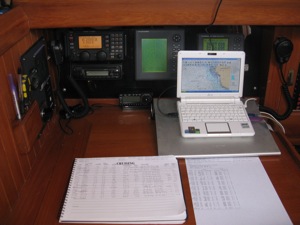
2. Know who to call. This is especially critical outside the US. We kept a list of telephone numbers for the authorities in whatever country we happen to be cruising –but keep in mind, other cruisers may be your best, and first, source of help. If it requires more, a call to the US Coast Guard Miami might be in order – even if they don’t have resources in your area, they generally know who to call. Often they can place the calls for you or at least provide local contact information. Also, usually local port captains can direct you to the appropriate resources so it can be helpful to have their telephone numbers.
In US waters or even offshore, a life threatening emergency justifies a May Day call to the US Coast Guard. Anything less than a vessel or person in grave danger requiring immediate assistance is NOT a May Day. So if you have a fire aboard and are sinking, or if someone aboard has a true medical emergency, call the US Coast Guard. The procedure is to repeat May Day three times, so “Mayday, Mayday, Mayday, this is the sailing vessel Winterlude, Winterlude, Winterlude. Position: current latitude and longitude. We have a fire and are taking on water. Two persons aboard.” Then wait for a response. If you don’t get a response, broadcast your Mayday again.
If you have less than an immediate danger and the situation is stable, but still urgent, call the US Coast Guard using Pan-Pan instead of Mayday. Pan-Pan notifies everyone listening that there’s a danger or safety problem, but at least for now, it’s in the future. We hear Pan-Pan alot when the US Coast Guard is notifying vessels of navigational hazards in the area.
If you have DSC capability on your VHF radio, preferably integrated with the GPS, be SURE to have regular drills to insure you know how to use it. When you have a true emergency is NOT the time to be looking for the instruction manual and trying to program in your MMSI number! So if you’ve never set up your DSC or aren’t familiar with it, stop reading this post right now and go get your manual!
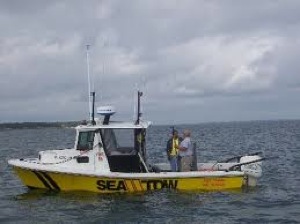
Obviously, in “normal” situations, do not bother the US Coast Guard, but call your preferred towing service. On VHF 16 say SeaTow (or Towboat US) three times, followed by your boat name three times and wait for a response. Once you have established communication, the towing service will likely ask you to switch to a different channel. Go ahead and switch immediately and then use the same call again until acknowledged. If for whatever reason, you don’t reach them on the switched channel, go back to 16 and try again. Obviously if you’re on a cell phone, you won’t have these issues.
2. Location, Location, Location!!! Please know where you are! I am absolutely amazed when I listen to VHF assistance calls and the captain can’t tell the service a location — any location! I’ve literally heard an ongoing conversation from a boat taking on water somewhere in the ICW where assistance arrived at the location given to find no boat. Back & forth between the towing service and the captain were going nowhere. At one point an exasperated towing service boat asked the captain if he had charts aboard. The answer? “Of course, but they’re put away.” ???? People are amazing. EPIRB’s will automatically transmit your specific location, which will be helpful in a true emergency; but there’s no excuse for not knowing where you are. The best location information is latitude and longitude right from your GPS — I’m also amazed at the number of boaters calling for assistance that tell the towing service or coast guard “yes, I have a GPS but it’s not turned on”? Why wouldn’t you leave your GPS turned on all the time? It doesn’t require much juice and if there’s a good reason not to have it on, I’ve never heard it.
3. Whoever you call will require other information as well. As soon as you establish communication, obviously, you’ll tell them what the problem is — “we’re taking on water but the bilge pump is keeping up for now”,” our engine has overheated and we’re attempting to sail in the pass”, “we’re out of gasoline”, “we’re stuck on a sandbar” and so on. Keep it short and to the point, no pontificating or excuses necessary. Radio communications are sometimes difficult to hear and understand, the more to the point, the easier it is for the towing service or USCG to understand and get you the help you need.
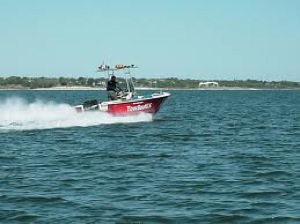
4. Be ready to give a brief description of your vessel: “Winterlude is a 37′ Passport sloop with a dark hull, dark green canvas and an arch” – the more specific you can be, the better. There are a lot of “white sailboats” out there, add canvas color and any other characteristics that could help someone visually identify your boat from a distance.
5. Be ready to provide information on the number and names of the people aboard, and anything else that is pertinent to the situation.
If there are people aboard that are unfamiliar with emergency procedures, take the time to show them how to use the VHF – or the cell phone and where the telephone numbers are located. If something happens to the captain (or mate or both), it could be critical for a guest to know how to contact someone. You might consider writing down the information on the boat, the description, your names, etc. below the emergency numbers that are posted (ours are taped to the underside of the nav desk opening top) so that anyone aboard can make an emergency call with the information at hand.
Before you call, be sure to have at least the critical information available. Even the US Coast Guard can’t help you if they can’t find you.
During the contact, you will likely be instructed to leave your radio tuned to whatever station for ongoing communications.
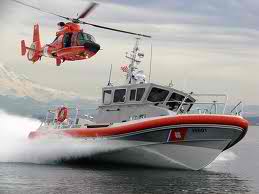
And PLEASE do not tie up US Coast Guard resources and radio time for less than a true emergency, call your towing service instead. For most it probably seems that this information is so very basic that it’s ridiculous to make a post of it. But the number of calls lacking in basic common sense we hear over the VHF radio each winter proves that there are boaters out there that need to learn the basics.
Enjoy your commuter cruising, but be prepared!
Do you have anything to add, tips for calling for assistance? Please leave a comment!
THX! Jan
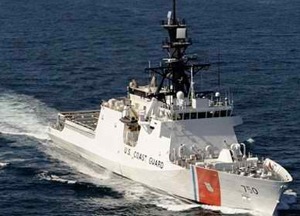
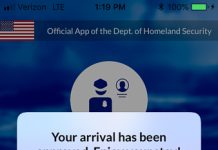










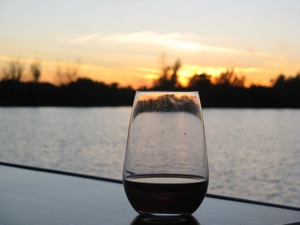

Thank you for your work. Write-up helped me quite a bit
After having read countless sailing articles (yes, I’m still stuck here in Beautiful Tennessee building a boat fund for a new motor) and having sailed for a total of 25 yrs around Florida, I want to congratulating you on having done a really great job at putting this together. For anyone not well experienced, this information is spot on. I would even go so far as to paste this info on the under side of the nav table top for reference. You can’t imagine how uncooperative,uncreative, and useless our brains become in the middle of an emergency, especially with fatigue or diminished capacities. This topic is the epitome of the 6 “p” program; prior planning prevents piss poor progress. Know this information and re-read it once a year for familiarity, please.
Now, relax everyone and go back to your fishing ….
s/v Renasci